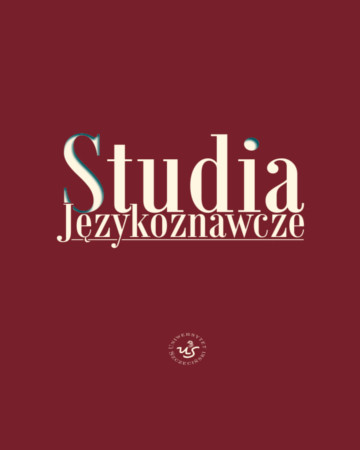Modyfikacje zwrotu podbijać komuś bębenka we współczesnej polszczyźnie
A modification of the expression podbijać komuś bębenka in the contemporary polish language
Author(s): Jolanta Ignatowicz-SkowrońskaSubject(s): Language studies, Semantics
Published by: Wydawnictwo Naukowe Uniwersytetu Szczecińskiego
Keywords: formal innovations; phraseology; semantic innovations;
Summary/Abstract: An old expression, coming from the 16th century, podbijać komuś bębenka, ‘to flatter somebody’,which is analysed in the article, is now frequently used, but in some innovative forms both at the formal and semantic levels. Such updates are favored by the fact that the genesis of the expression is not widely known, and – as suggested by the analysis – its formal and semantic consolidation in the memory of the speakers is rather weak. The expression is still used, although in modified forms, because it is somehow attractive for the speakers. From the formal point of view there appear all possible transformations of its structure: lexical, grammatical and collocative. From a semantic point of view the most clear are the updates with the original meaning: ‘to flatter somebody’. The other options are less clear. It is possible to find contexts, definitely less numerous, with the meaning: ‘to encourage somebody’, and – according to the results of the research – both the positive and the negative connotations might appear:‘to encourage somebody to do something positive’, ‘to stimulate’ or ‘to encourage somebody to do something negative’, ‘to egg on’. In addition, there are numerous quotations in which the expression – formally innovative – becomes a carrier of new meanings: ‘to bid up’, ‘to heighten’,‘to play on somebody’s emotions’, and ‘to add fuel to something’. The occurrence of such meanings results from the fact that the old expression of unclear genesis for the present-day speakers has developed new semantic relations with other words and expressions, and because it associates with non-linguistic phenomena: drumming, beating the drum.
Journal: Studia Językoznawcze. Synchroniczne i diachroniczne aspekty badań polszczyzny.
- Issue Year: 2016
- Issue No: 15
- Page Range: 145-165
- Page Count: 21
- Language: Polish

